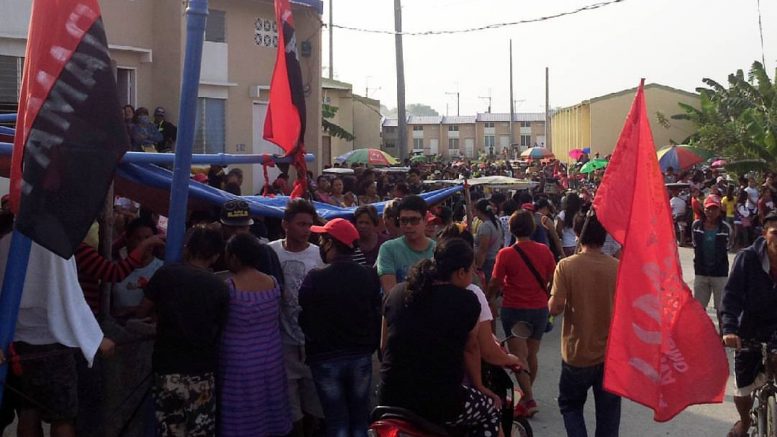A labor nongovernment organization expresses solidarity with group KADAMAY and the #OccupyPabahay movement on Wednesday, stating that the movement calls forth the negligence of the government to provide decent housing and efficient social services to the poor.
The Ecumenical Institute for Labor Education and Research (EILER) insisted that KADAMAY underwent legal processes through dialogues, lobbying and negotiation with the government agencies but the latter failed to provide immediate relief and instead pressed on demolitions forcing KADAMAY to occupy the abandoned housing units.
“The issues of the urban poor are issues of the workers. At the workplace, workers do not receive living wages, are victims of precarious work arrangements and have no bargaining rights. They are easily sacked from work because of contractualization. Oftentimes, they don’t have access to new opportunities and are forced to enter informal work. They come home with empty stomachs, no homes to call their own, and lack of efficient social services to help them combat poverty.” EILER deputy executive director Rochelle Porras said.
In a study conducted by EILER in two urban poor communities (2015), 77 per cent of the women in the areas are engaged in informal work as “sari-sari” store owners, sidewalk vendors (of drinks and snacks), garlic peelers and laundry-women. About 22 per cent are jobless while a very small percentage of the women are wage and salary workers. Households in depressed communities do not have sufficient income as most earn below P100 a day.
At home, informal women workers are doubly burdened with the need to fulfill household roles and augment family income. They stand to be affected most by demolitions as they will be uprooted from their work environment in the community and their social support network. Poverty and the continuous increase of underemployment in the country is bolstered by contractualization and other labor flexibilization schemes that further press down wages.
EILER also criticized the Housing and Urban Development Coordinating Council and key shelter agencies for wasting billions of public funds in idle, substandard housing projects. The government’s resettlement projects and subsidized housing also serve as avenues for corruption. The labor NGO also demands the repealing of Urban Development and Housing Act of 1992 (Republic Act 7279), stating that is being used to legitimize demolitions of areas where the urban poor resides.
“We urge President Duterte to advance the rights of the poor and all other disadvantaged sectors by continuing with the peace talks and the Comprehensive Agreement on Social and Economic Reforms (CASER), which tackles the right to housing and the participation of the basic sectors in the pursuit of just and prosperous society.” Porras concluded.

